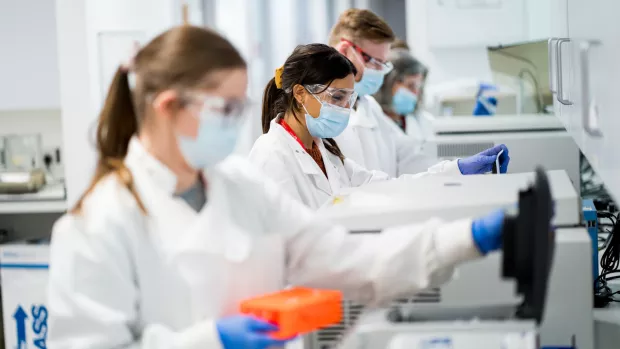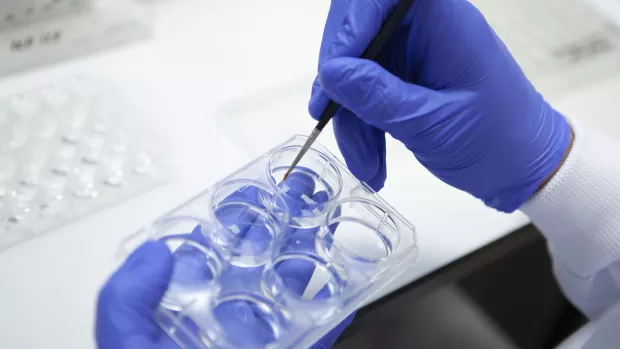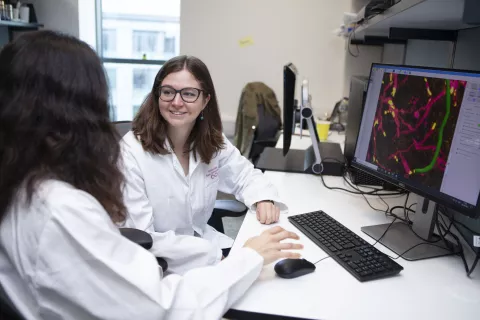
How family connections inspired my genetics research
For International Day of Women and Girls in Science, we’re highlighting one of our brilliant scientists in MS research. Mollie McKeon is a PhD researcher at the University of Cambridge, where she researches the genetics of MS progression. Mollie’s mum Ceridwen Roberts lives with secondary progressive MS.
Family living with MS
Mollie: Growing up with my mum living with MS made me curious about the condition. I used to go to the MS therapy centre with her and saw everyone had such different experiences. I wanted to understand how that could be. It's almost as if the unpredictability sparked my scientific interest.
Ceridwen: The course and experience of MS is unpredictable both within the individual and across all people who are touched by the condition.
I was 25 and starting my teaching career when I experienced numbness and strange sensations around my middle. I was eager to attribute these to a trapped nerve in my back. I was aware that my grandfather lived with MS.
Over the next seven years I experienced a range of non-specific symptoms, and at 32 was finally diagnosed with MS after an MRI scan. It was 1996 and at the time I was offered no counselling. No MS nurse had been appointed and no disease modifying treatments were available.
After Mollie was born in 1999, I had the benefit of some treatments. Sadly, as my MS developed into secondary progressive, there were no longer any suitable for me.
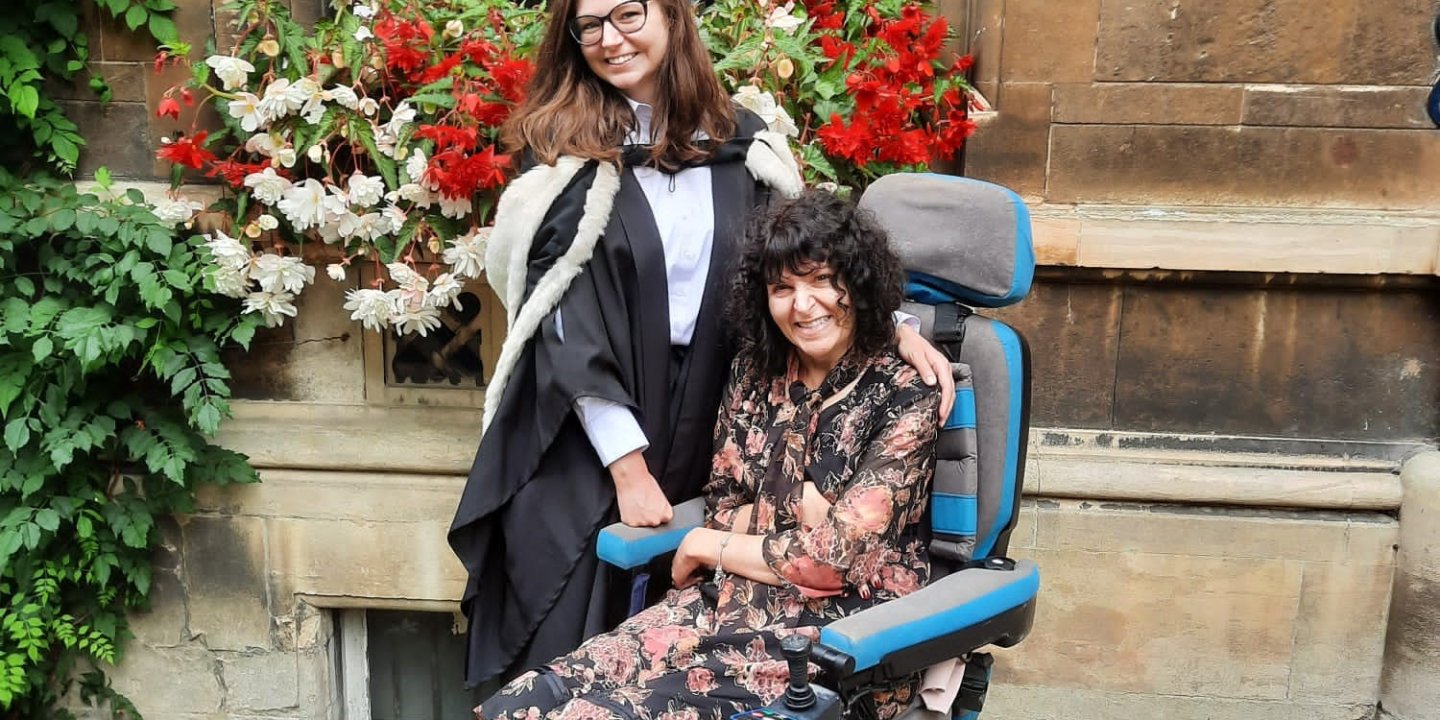
Mollie: When my mum was diagnosed with secondary progressive MS there was almost nothing we could do. Our joint frustration is probably what funnelled me towards research into understanding progression and developing new treatments.
I think, for me, it also built resilience to deal with other unpredictable aspects of life… like research! When there's a big thing out of your control, you realise that lots of things are also out of your control.
Ceridwen: I was determined that although MS was a hell of a blow, it wouldn't change everything. Mollie has accommodated and adapted, sometimes taking on a caring role. Fortunately, we’ve both benefitted from caring and empathetic friends.
Researching progressive MS
Mollie: My research is looking at the genetics of MS progression. We know you can’t directly inherit MS but there are some variants of some genes which can increase your risk. I knew my mum’s grandfather lived with MS so I’m interested in genetics, as well as the unpredictability of the condition.
I’m building on a recent international study led by the University of Cambridge and the University of California. It found a genetic variant associated with faster MS progression. This means if someone has this variant, their MS is more likely to progress faster than someone who doesn’t have it.
Now, I want to find out what inheriting that genetic variant could really mean for people with MS. I’ll use cells in a dish to look at the effect on the cells we know are important in MS.
Ceridwen: Mollie has had intimate experience of how the condition has affected all aspects of our lives. I’m now described as advanced secondary progressive and I’m a wheelchair user with little use of my arms.
My understanding is that Mollie’s research is exploring the possibility of a genetic component that will account for the progression of MS. She hopes this knowledge will help to develop future treatments to slow, manage, and ultimately prevent the development of progressive MS.
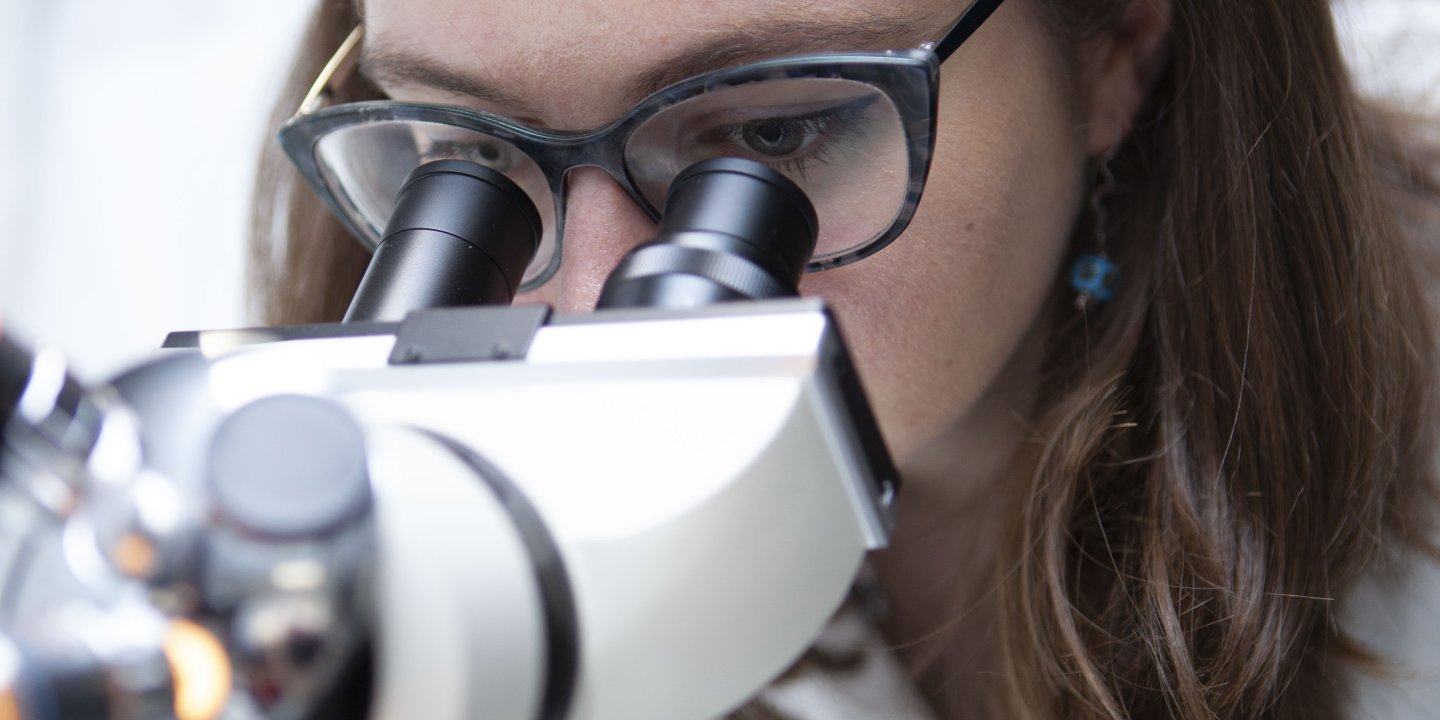
Mollie: I think this research means a big opportunity for a new class of treatments. Once we understand how this genetic variant has an effect, we may have a whole new strategy to make drugs against progression.
My project is particularly exciting because I’m bringing together researchers from different specialities. I’m joining up experts in traditionally quite different fields - stem cells, neuroscience, clinical research and genetics. So we can all learn something new. Collaboration will help us to turn a genetic finding into new drugs for people with MS.
Read more about the research that inspired Mollie's project
Focus for the future
Mollie: Sometimes there’s a gap between what researchers think is a priority in MS research compared to what the most pressing thing on the minds of people with MS is.
Having a personal connection to MS is grounding. It focuses my research time and effort. I’m often conscious of what might be the priorities for my mum - it might have stopped me going down some rabbit holes! I want to do MS research that has the potential to improve people's lives.
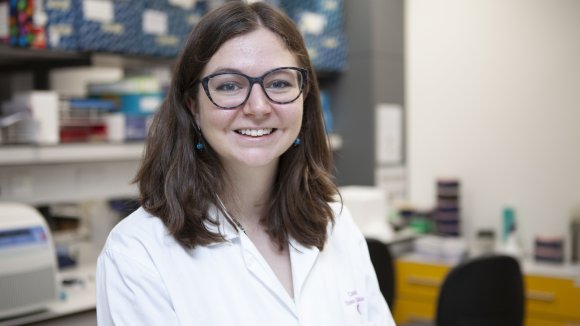
My mum is part of the inspiration for my research. She also inspires me with her determination, independence and resilience. It’s instilled in me the same attitude towards my own research - and life!Mollie McKeon
Ceridwen: I recognise progress in research is painstaking and time-consuming. I know I personally am unlikely to experience any direct benefits. But it’s thanks to the commitment and tenacity of researchers such as Mollie that we may make progress.
Hopefully, the research which Mollie is engaged in will prove beneficial and life enhancing for people like me living with secondary progressive MS.


